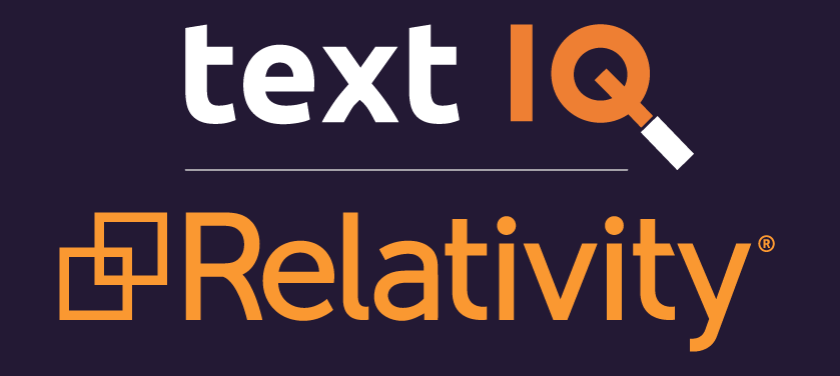
By Omar Haroun, Co-Founder & COO of Text IQ, a Relativity company.
AI’s adoption has accelerated only in recent years, but its conceptual roots stem, at least in part, from a 1950 essay. It’s been almost 75 years since Alan Turing’s seminal paper, ‘Computing Machinery and Intelligence’, was published, which rejected the long-held belief that machines could not be taught human intelligence.
Our understanding of and attitudes towards AI has evolved considerably since. It is true that AI is capable of performing computationally intensive tasks at a scale and precision that goes beyond anything that humans can do. Creativity, on the other hand, remains an innately human ability; indeed, the capacity to combine disparate ideas into something meaningful is and will always remain an exclusively human privilege.
Attorneys are required to be highly strategic, creative and, above all, detail-oriented and precise in discharging their duties. Yet there are certain tasks within the legal profession which, owing to the lack of technological innovation, keep them from doing their best work. For instance, consider how attorneys spend a disproportionate amount of time going through mountains of documents during discovery, analysing each and every document for privilege and responsiveness.
These tasks are highly repetitive and computationally intensive. We are now at a point where AI models can be easily trained to perform them in a way that is quicker, more accurate and more cost-effective so that attorneys can allocate their time and considerable knowledge to more value-additive work such as case strategy.
New Data Challenges Make It Imperative to Use AI
Data volumes are growing at a furious pace. 2020 was a tipping point as data volumes rose by 57% over the previous year with companies shifting to remote work and communication over Slack, Microsoft Teams and Zoom taking the place of in-person meetings and conversations.
This data-centric reality means companies have more data than they can handle. An enterprise’s expanse of data is often unknown, at least partly exposed and vulnerable, and wasted as a value-driving resource. As a result, data privacy has become a pressing, global concern. Enterprises must contend with an array of complex privacy laws, from Europe’s GDPR to California’s privacy acts (CCPA and CPRA) to Brazil’s LGPD, which stipulate new guidelines around categories of data such as Personal Health Data (PHI) and Sensitive Personal Information (SPI).
Without the computational power of AI, enterprise compliance with these laws would be almost impossible. Wired reports that almost 90% of enterprise data today is unstructured—human-generated data such as word files, chats, emails, presentations, reports, imagery (from graphics to surveillance video), rich media, and other types of data created by humans without a predefined data model.
Unstructured data is difficult to comb through and analyse. Identifying the smoking gun in a mountain of documents during litigation and investigations is too computationally intensive and cannot be done by humans alone. It poses almost insurmountable time and resource problems.
AI Will Play a Transformative Role in the Legal Arena
AI is already affecting a broad array of industries, but its impact on the legal industry will be truly transformational.
We are already seeing this pan out in e-discovery as some of the most forward-leaning and innovative e-discovery practitioners embrace AI to streamline the discovery process, but also apply it to identify and protect sensitive information more broadly across the enterprise.
Here are some areas where AI has already begun to play a transformative role:
- Accelerated Document Review – The use of AI is proven to accelerate privilege and responsiveness review during discovery. Indeed, AI models can identify privileged communications with more accuracy and at a greater speed than traditional processes.
- Data Breach Notification Assessment – AI can be used to accelerate data breach assessment, helping companies determine exactly whose data was impacted, along with the privacy laws and notice requirements applicable to the data subject.
- Speeding Up Compliance with an HSR Second Request – Similar to a litigation discovery request, a Second Request requires additional information and materials be submitted to the FTC or DOJ as they evaluate mergers and acquisitions for anticompetitive behaviour. It’s expensive for businesses to comply but crucial in avoiding antitrust violations. AI can dramatically speed up the process by determining the relevance of documents.
This is only a small sampling of AI’s active uses in the legal sector. New, powerful ways of applying AI to unstructured data are emerging. AI that uses continuous learning, social graphs and contextual understanding can help identify sensitive information at scale in a manner enterprises are just beginning to explore.
Lawyers Are Duty-Bound to Deploy AI Within an Ethical Framework
As that exploration jumps into high gear in the coming decade, it’s a pivotal moment for all who are developing AI to put transparency on the table and ethics first. When deployed without the right set of guardrails, AI’s application can go awry, amplifying human bias and widening inequalities.
Just as AI can be a force multiplier for human productivity, enable new applications, and help us solve intractable problems, it can also do serious harm by making unfair and indefensible decisions in the absence of close oversight. Consider, for instance, how algorithms have been used in the criminal justice system to incorrectly overstate the likelihood for recidivism in inmates of colour, or how a prominent technology company scrapped its automated recruiting tool after it found that the AI-run system was lowering the score for resumes that had the word “women” in it.
Those harnessing AI in the legal field have a particular obligation to embrace and advance its ethical development and implementation — a topic we will explore in more detail at Relativity Fest in London on May 17. Basic moral accountability, as well as the major thrust of democratic jurisprudence, reminds us that if law’s purview isn’t just, it may not be valid. The same can be said for AI and its outcomes.
The intractable data challenges of today and tomorrow will not be solved by technologists alone. AI is not a silver bullet. It needs to be supported by subject matter experts who recognise its benefits, clear the way for its adoption, and put guardrails in place to ensure that it’s used safely and ethically. Some original thinkers in legal, compliance and risk are doing this work via the AI Visionaries effort. Their example, as early AI adopters blazing a creative trail to shape good and value ad infinitum with AI, is aimed at solving consequential problems in a world of boundless data.
—
About the author: As Co-Founder and Chief Operating Officer of Text IQ, Omar Haroun (pictured) drives commercialisation efforts. Omar has played integral roles across sales, marketing, customer success, and product at different times in the company’s life cycle. He was instrumental in building Text IQ’s executive leadership team and steering the company’s fundraising and go-to-market efforts. In May last year, Text IQ was sold to Relativity.

[ Artificial Lawyer is proud to bring you this sponsored thought leadership article by Text IQ, a Relativity company. ]